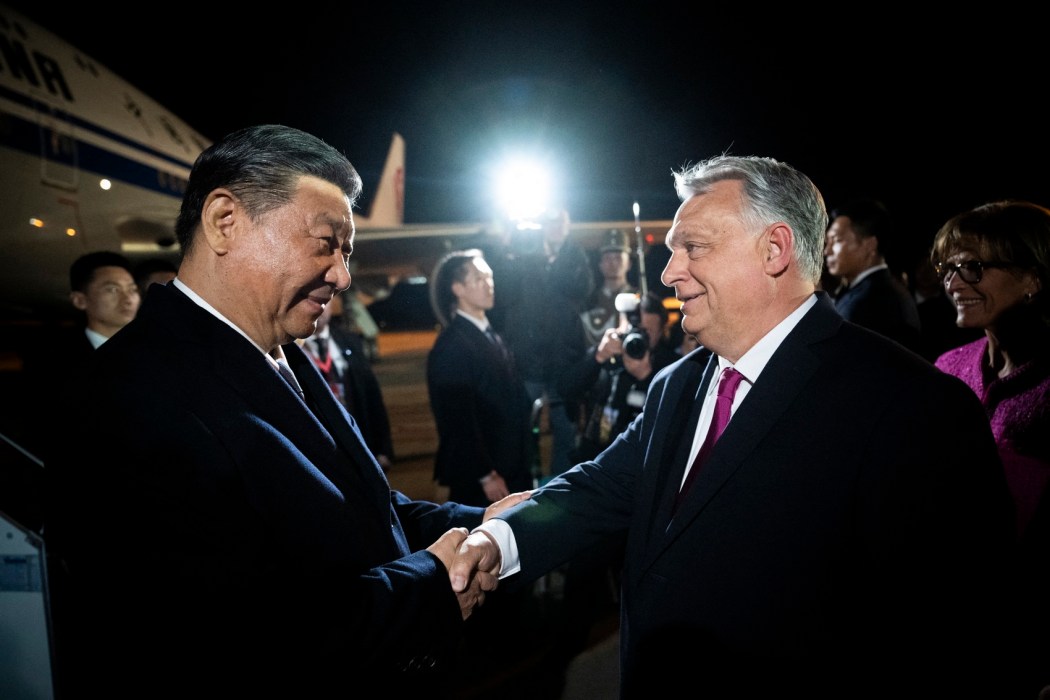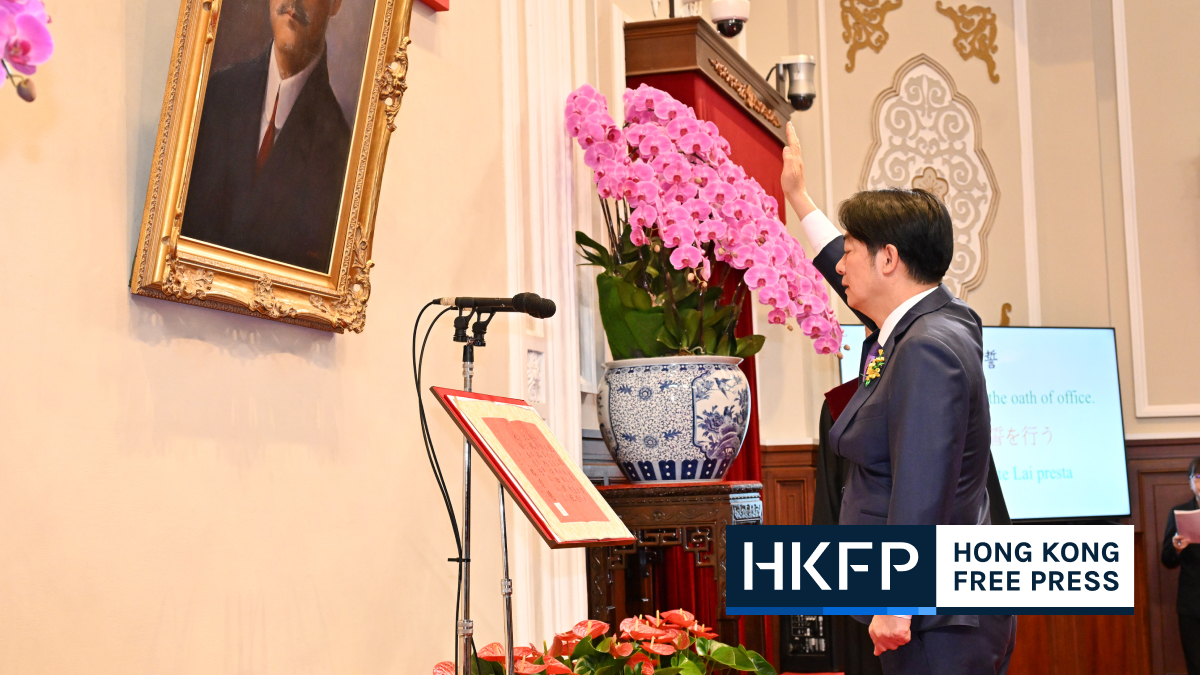By Ludovic Ehret
Hungarian Prime Minister Viktor Orban will host Chinese President Xi Jinping in Budapest on Thursday in a bid to strengthen already flourishing ties between Beijing and its closest EU ally.

The state visit to Hungary is the last leg of Xi’s European tour, his first since 2019.
Earlier this week, the Chinese leader kicked off his trip in France, a visit that was cordial but also highlighted tensions between Beijing and the EU over the war in Ukraine and global trade.
After visiting non-EU partner Serbia, Xi arrived in Budapest on Wednesday evening.
In an op-ed published in Hungary’s pro-government Magyar Nemzet daily ahead of his arrival in Budapest, Xi praised a “long-standing friendship” he described “as mellow and rich as Tokaji wine”, referring to the renowned Hungarian vineyards region.
“We have gone through hardships together and defied power politics together amid volatile international situations.
“Our bilateral relationship is at its best in history, and has embarked on a golden voyage… On the new journey of the new era, China looks forward to working closely with our Hungarian friends,” he wrote.
Frequently at loggerheads with Brussels, Orban has been advocating an “Eastern opening” foreign policy since his return to power in 2010, seeking closer economic ties to China, Russia and other Asian countries.
The nationalist premier remained committed to his strategy even as tensions between Western nations and Beijing increased over human rights violations, the Covid pandemic, trade and Russia’s invasion of Ukraine.
Deepening ties
Xi’s three-day visit to Hungary marks 75 years of diplomatic relations between it and China.
In recent years, the Central European country of 9.6 million people has attracted a flood of major Chinese projects, mostly related to battery and electric vehicle (EV) manufacturing.
Since Hungary began to promote itself as a global hub for EV manufacturing in 2022, several new Chinese businesses have sprung up all over the country.
According to the Hungarian government, the two countries are expected to sign at least 16 different agreements promoting their cooperation in rail and road infrastructure, nuclear energy and the automotive industry.

After a dinner featuring traditional Hungarian specialities on Wednesday evening, Xi will be received with military honours in Budapest on Thursday morning, alongside Hungarian President Tamas Sulyok.
Xi will then meet Orban for talks before delivering a statement to the press later in the day.
The Chinese leader is due to depart Hungary on Friday afternoon.
‘Diplomatic win’
While French President Emmanuel Macron pressed a message to Beijing not to support Russia’s war against Ukraine and to accept fairer trade, Hungary will provide “a friendlier destination for Xi”, said political scientist Ja Ian Chong of the University of Singapore.
In Hungary, a country with close ties to both Moscow and Beijing, Xi will be able to “avoid tough conversations and awkward questions”, he added.
Both countries have called for a peaceful settlement of Russia’s war in Ukraine.
“Hungary provides a diplomatic win for Xi, showing his warm ties with an EU member state that will still roll out the red carpet for Chinese investment,” said Xiaoxue Martin, a researcher at the Clingendael China Centre.
“Xi’s message to the rest of Europe: this is how China would like to be treated in Europe,” she added.
On the streets of Budapest, Hungarians questioned by AFP seemed divided over the visit of the Chinese leader.
“Money does not smell, as they say, so other countries would welcome the kind of investment that is going to happen here, even in Western Europe I assume,” said 52-year-old security manager Laszlo Toth.
But Tibor Hendre, head of the Tibet Support Association, said he was worried that Hungary was “getting into… a debt trap, from which we cannot really escape”.
Software engineer Dezso Bereknyei, 46, said that “financial benefits” appeared to be driving the cooperation, and were “coming before environmental protection”.
Dateline:
Budapest, Hungary
Type of Story: News Service
Produced externally by an organization we trust to adhere to high journalistic standards.
Support HKFP | Policies & Ethics | Error/typo? | Contact Us | Newsletter | Transparency & Annual Report | Apps
Help safeguard press freedom & keep HKFP free for all readers by supporting our team

LATEST FROM HKFP
HKFP has an impartial stance, transparent funding, and balanced coverage guided by an Ethics Code and Corrections Policy.
Support press freedom & help us surpass 1,000 monthly Patrons: 100% independent, governed by an ethics code & not-for-profit.










